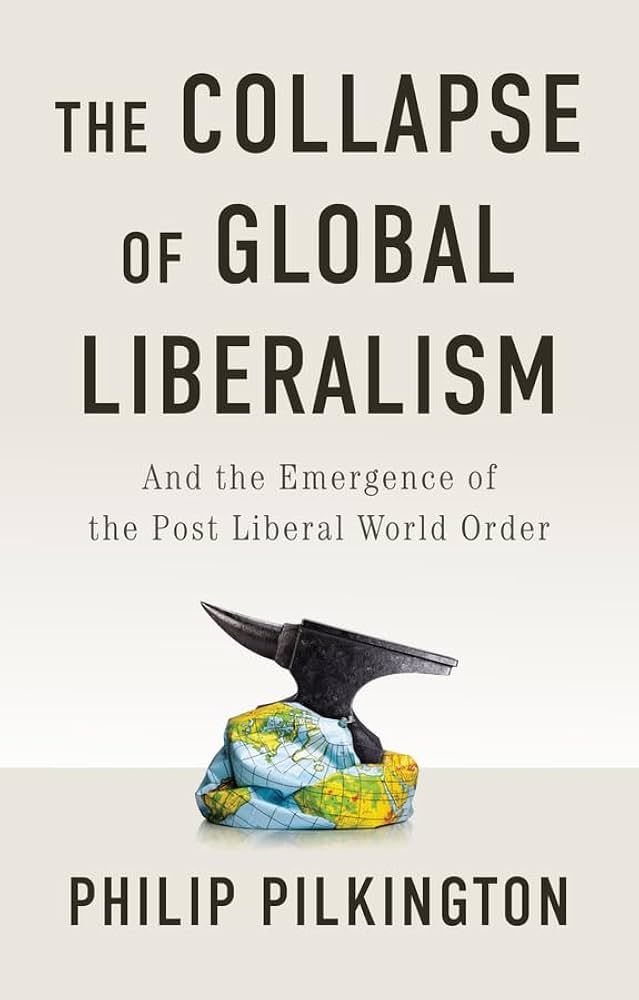Philip Pilkington"s "The Collapse of Global Liberalism" Redefines Political Ideology
In a compelling new work, Philip Pilkington"s "The Collapse of Global Liberalism" delves into the intricate evolution of liberalism, not simply as a political ideology, but as a profound metaphysical force that has shaped contemporary society. The book, which has garnered significant attention since its release, is being hailed as a must-read for anyone interested in the ideological battles that define our times.
Background & Context
Liberalism, often associated with concepts of freedom, equality, and individual rights, has been a dominant ideology in the global political landscape for decades. However, its foundations are increasingly being questioned amidst rising populism, nationalism, and socio-economic disparities. Pilkington"s work seeks to unravel the complexities of liberalism, arguing that it is not merely a static doctrine but a dynamic historical project aimed at dismantling hierarchies in pursuit of equivalence, identity, and progress.
The book"s thesis comes at a critical juncture in global politics, where many nations are experiencing profound shifts in governance and societal values. As recent developments in various regions illustrate, the challenges to liberalism are not just academic but manifest in real-world conflicts and policy decisions. For instance, Israel"s recent moves to implement sovereignty over the West Bank highlight the tensions surrounding identity and governance in a liberal framework, as detailed in earlier coverage of the situation.
Key Developments
In the introduction and the first two chapters of his book, Pilkington lays out his provocative argument that liberalism’s essence lies in its historical trajectory rather than a fixed set of principles. He posits that liberalism is a project aimed at challenging and dismantling established hierarchies—whether they be economic, racial, or gender-based—in favor of a more equitable society. This perspective invites readers to reconsider the efficacy and future of liberalism in an increasingly polarized world.
Pilkington’s analysis suggests that the very foundations of liberalism are under siege, as evidenced by the rise of alternative political ideologies that prioritize national sovereignty and cultural identity over liberal values. This is particularly relevant in light of global movements that reject liberalism"s universalist claims, as seen in the ongoing struggles in Ukraine, where the parliament has taken steps to restore the independence of anti-corruption agencies—an essential move towards reform in a nation grappling with its identity amid external pressures. This aligns with recent developments that underscore the complexities of governance in a liberal context.
\n\n
Image for Philip Pilkington"s "The Collapse of Global Liberalism" Redefines Political Ideology
Broader Impact
The implications of Pilkington’s work extend beyond theoretical discourse; they resonate with the lived experiences of individuals navigating a world marked by economic inequality and political disenfranchisement. By framing liberalism as a historical project, Pilkington invites a reevaluation of its successes and failures, offering a lens through which to analyze current political dynamics. Critics of liberalism may find solace in his arguments, while proponents may be challenged to defend the ideology"s relevance in a world where traditional hierarchies are being contested.
As global leaders grapple with the ramifications of these ideological shifts, the book provides an essential framework for understanding the ideological undercurrents influencing policy decisions. The rise of populist leaders, calls for reform in governance, and renewed debates over national identity are all part of the broader struggle that Pilkington explores.
What"s Next
As readers anticipate the subsequent chapters of Pilkington"s book, the ongoing discourse around the future of liberalism is likely to intensify. The book not only serves as a critique but also as a call to action for those engaged in the political realm. As the world continues to witness significant political upheaval, understanding the trajectory of liberalism will be crucial for policymakers, activists, and scholars alike.
The conversations sparked by "The Collapse of Global Liberalism" will be instrumental in shaping future discussions on governance, identity, and the role of hierarchies in society. With the ideological landscape continually evolving, the insights provided by Pilkington may very well influence how we navigate the complexities of our current political climate.

Image for Philip Pilkington"s "The Collapse of Global Liberalism" Redefines Political Ideology



![[Video] Gunfire between Iraqi security forces and Sadr militias in Baghdad](/_next/image?url=%2Fapi%2Fimage%2Fthumbnails%2Fthumbnail-1768343508874-4redb-thumbnail.jpg&w=3840&q=75)
